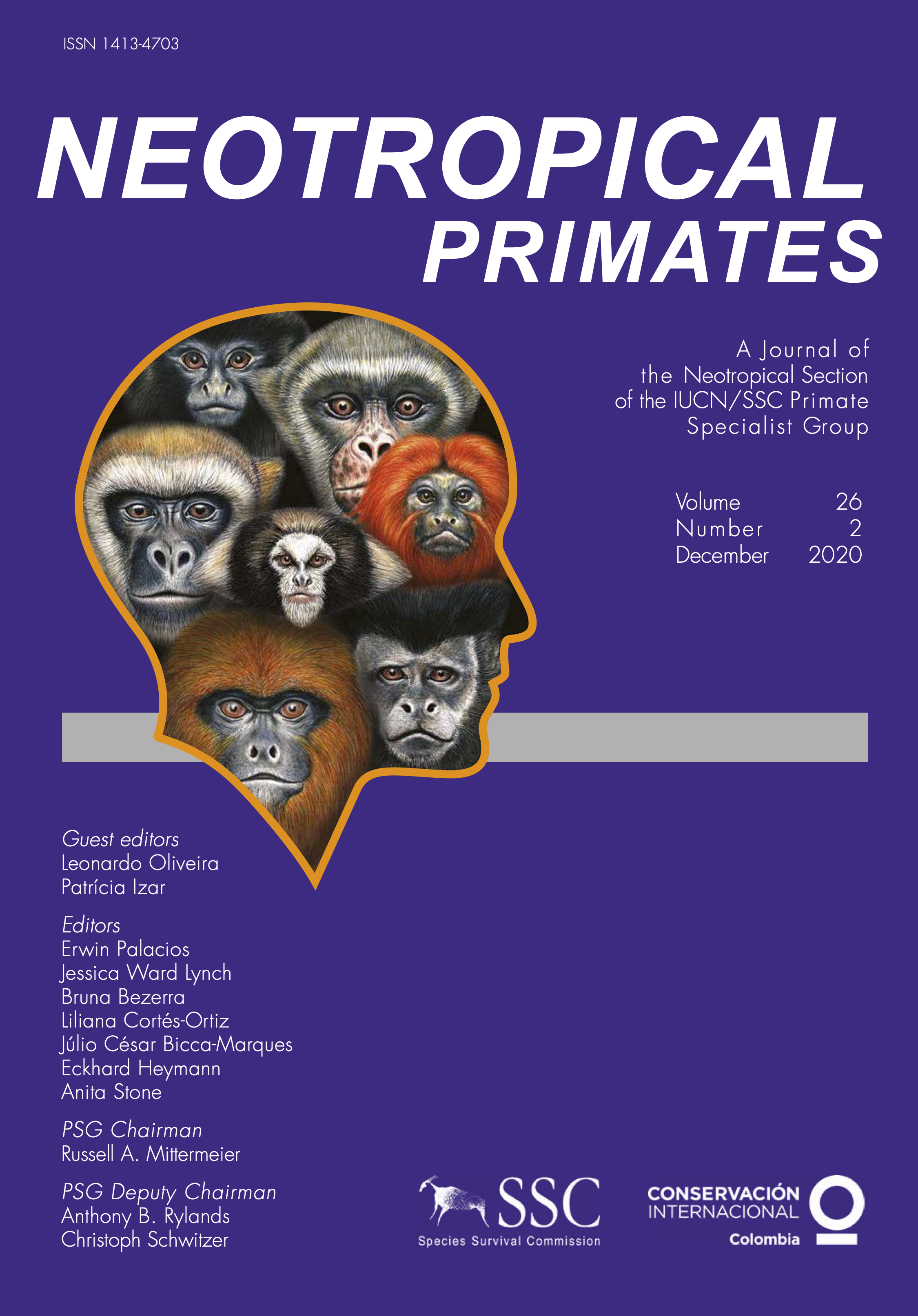Pre-capture monitoring for a planned translocation of a northern muriqui (Brachyteles hypoxanthus) female from a forest fragment surrounding Caparaó National Park, Brazil
DOI:
https://doi.org/10.62015/np.2020.v26.43Keywords:
Dispersal, management, conservationAbstract
Conservation translocation may play an important and necessary role in primate conservation as several species are facing an impending extinction risk and population decline. However, translocations are a high-cost endeavor. Therefore, pre-capturing monitoring can be an essential component in the success of primate translocation. In this study, we report the first confirmed sighting of a female Northern Muriqui (Brachyteles hypoxanthus) stranded alone in a small fragment of Brazilian Atlantic Forest, and her pre-capture monitoring for a future planned translocation. Monitoring was realized from June 2018 to July 2019, and included data collection through direct observational and arboreal camera trap methods, and non-invasive collection of faecal samples for additional genetic studies. Our results showed that the female used the total area of the 1-ha forest fragment with an average daily displacement of 59.6 m ± 76.2. The female spent most of the time ‘Resting’, followed by ‘Travelling’ and ‘Feeding’, which did not vary significantly between seasons. Intraspecific activity pattern variations may be related to the amount and quality of the feeding resources available in the forest fragments. No stereotyped behavior or advertising signals were reported during the monitoring. Our study provides insights on solitary primates living in marginal habitats and highlight the importance of pre-capture monitoring to provide important information on the general behavior of the target individuals, on the regular movements and overall home ranges, and to help to guide future translocations.

Downloads
Published
Issue
Section
License
Copyright (c) 2020 Aryanne Clyvia, Daniel da Silva Ferraz, Claudio L. Novaes, Viviane Sodre Moura, Izamara Aparecida Lacerda, Madson Teixeira Alves, Fabiano Rodrigues de Melo, Mariane da Cruz Kaizer

This work is licensed under a Creative Commons Attribution-NonCommercial-ShareAlike 4.0 International License.


